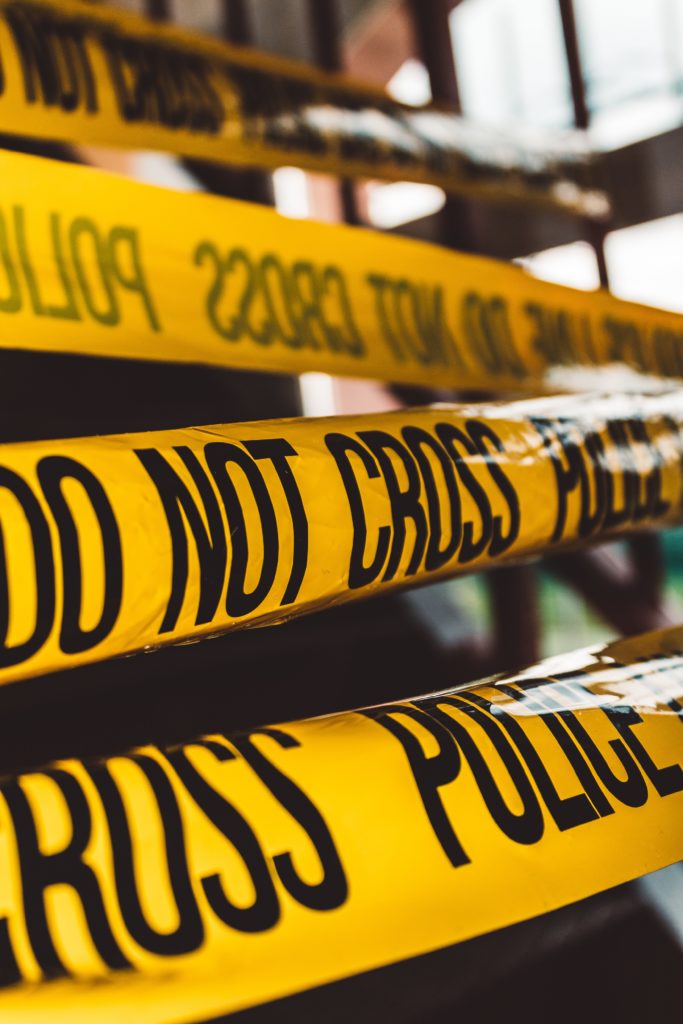If you provide a fake name or a false address to a peace officer in Calgary – or “obstruct” them in performing their duties in any way – you may face a criminal charge of obstructing a peace officer.
This can be a very confusing charge, so let’s take a look at what it means, who is classified as a peace officer, and what you can do about it if you’re charged.

What is obstructing a peace officer?
“Obstructing” a peace officer means to interfere with, resist or to omit to assist them during the lawful execution of their duties.
Simply remaining passive and silent is not usually deemed “obstruction” though it may lead to another charge. Obstruction generally requires an action, such as the following;
- Directly disobeying an order
- Lying to or misleading a peace officer who questions you
- Providing a fake name
- Hiding evidence
- Running away
In Canada, the following individuals are considered peace officers (not an exhaustive list):
- Calgary police officers
- RCMP
- Canadian Forces officers
- Customs officers
- Bailiffs
- Mayors
- Wardens
- Pilots
Defences for obstructing a peace officer
If you are charged with obstructing a peace officer, the prosecution will need to prove five elements to achieve a conviction:
- You obstructed a peace or public officer
- The officer was lawfully carrying out their duty when obstructed
- Your actions affected the officer’s ability to perform their duty
- You were aware that the individual was a peace officer
- Your actions were intentional
The fact that all five elements must be proven beyond a reasonable doubt creates some opportunities for an experienced criminal defence lawyer to build a case.
Even if the evidence against you seems overwhelming, seeking legal advice from an attorney can save you from a criminal record and its potentially severe consequences.
The most common defences include the following:
No intention to obstruct
If you did not intend to obstruct the officer, you cannot be found guilty. For instance, if you thought a particular piece of information was true but it turned out to be false, this could be grounds for an acquittal.
No awareness that the person was a peace officer
In the case of a plainclothes/non-uniformed peace officer, who did not adequately identify themselves as such, there may be an argument that the accused was not aware that the complainant was a peace officer.
Mistaken identity
If the alleged offence was not caught by surveillance video, there may be reasonable doubt about the identity of the person involved. Unless the video clearly identifies you as the perpetrator and you have no reasonable alibi, your lawyer may be able to argue that it was not you who committed the offence.
Unlawful exercise of duty
To achieve a conviction, the peace officer must be lawfully carrying out his or her duty when obstructed. Your lawyer may be able to argue that the officer was operating outside the bounds of duty e.g., failing to advise you of the reason why they wanted to arrest you. In such a case, you would not have been legally bound to follow the commands and so could not be guilty of obstruction.
Violation of constitutional rights
You are protected before and after your arrest by certain provisions in the Canadian Charter of Rights and Freedoms. If the police fail to follow these provisions, your lawyer may be able to have evidence dismissed from the case, which could well aid your defence.
What will your lawyer do?
Your lawyer will pore over the evidence against you in detail, examine police actions, and listen to your version of events before advising on your options for defending the charge against you.
Cory Wilson will work closely with you, assembling the documentation and other evidence required to support your version of events. This may include gathering witness testimony.
If the defence is a violation of constitutional rights, police actions are key and your lawyer will closely inspect these. Sometimes, too, there are administrative, clerical or systemic errors that your lawyer will need to check for.
The more weaknesses that your lawyer can uncover in the prosecution’s case, the less likely it is that you will end up with a criminal conviction.
Call us to arrange a confidential consultation
To speak with Cory Wilson or arrange a free, no-obligation consultation with Wilson Criminal Defence, call 403-978-6052 or email us here.
